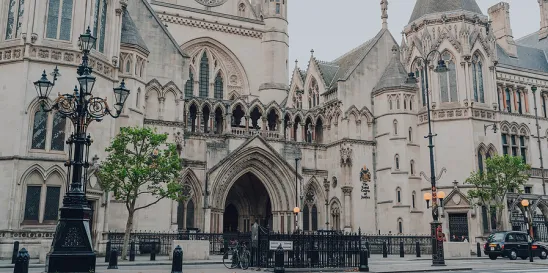Darty Holdings SAS v Carton-Kelly
(as additional liquidator of CGL Realisations Limited)
[2023] EWCA Civ 1135
Overview
The Court of Appeal has overturned the decision of the High Court in Carton-Kelly v Darty Holdings SAS,1 providing welcome clarity for directors of distressed companies when considering whether to make payments when a company’s solvency is called into question. The decision also provides a reminder of the circumstances in which an appellate court will disturb findings of fact made by the trial judge.
The key issue in this appeal was whether the repayment by Comet Group plc (“Comet”) of a £115.4 million unsecured intra-group debt to Kesa International Ltd (“KIL”) contemporaneously made upon the sale by KIL of Comet to companies controlled by OpCapita amounted to an unlawful preference within section 239 of the Insolvency Act 1986.
The trial judge, Falk J, held that it did. Falk J reached this finding on the basis that Comet’s intention to prefer KIL had been formed through the agency of Kesa Group’s general counsel Mr Enoch, who was a de jure director of Comet prior to completion of the transaction. Mr Enoch had negotiated the sale and purchase agreement (the “SPA”) that was signed on 9 November 2011 and which divested the loss-making Comet from Kesa Group to its new owners.2 The SPA provided, among other things, for the payment to KIL to be made at completion.
Darty Holdings SAS, as successor to KIL, appealed the decision.
A (quick) refresh on unlawful preferences
As all restructuring professionals know, certain transactions – sometimes referred to as “voidable” or “antecedent” or the more colloquial “clawback” transactions – entered into by a company prior to the opening of insolvency proceedings can be examined by an administrator or liquidator, and if the statutory tests are satisfied, rendered void. In the UK, one of the main types of such transaction is the ‘unlawful preference.’3 As the Court of Appeal noted, English insolvency law aims to achieve a pari passu distribution to creditors and the unlawful preference regime is designed to ensure this principle is not subverted by pre-insolvency acts of the debtor.4 The objective is to deter the debtor from doing anything which has the effect of putting a company’s creditors, or a surety or guarantor for any of the company’s debts or other liabilities, into a position which, in the event of the company going into insolvent liquidation or administration, will be better than the position that the creditor/surety or guarantor would have been in if that thing had not been done.5 In addition, for an unlawful preference to exist: (1) the company must be influenced by a desire to prefer that person; (2) the preference must have been given during the six months (or two years if the person is connected with the company) before the onset of insolvency proceedings; and (3) the company must be unable to pay its debts at the time of the transaction.
The Court of Appeal’s judgment
The High Court had found that Comet’s intention to prefer KIL had arisen upon signing of the SPA on 9 November 2011 when it had been agreed by the parties to the SPA that the KIL loan would be repaid at completion. The Court disagreed; although the judge’s findings in respect of the law governing the requirements for a preference to be satisfied were not disputed. Rather, the Court’s factual findings differed for the following reasons which led to the original decision being overturned:
- It was common ground that on 3 February 2012 when the board resolved to make the payment to KIL, as provided by the terms of the SPA agreed in the previous November, it had no intention to prefer KIL. The appeal therefore turned on the question of when the decision was taken to repay the loan to KIL. The trial judge had found that Comet’s intention to prefer KIL had arisen upon signing of the SPA when it had been agreed that the KIL loan would be repaid at completion.6 The Court determined that although the SPA had provided a framework for the making of the payment in the context of the disposal of the business, it was not until completion when Comet’s new board actually considered the payment and passed the resolution authorising it that the existence of the intention to prefer fell to be determined.
- Given it was common ground that there was no intention to prefer on the part of the ‘new’ Comet board appointed immediately prior to completion, the Court of Appeal was effectively being required to overturn the trial judge’s inference that it was Mr Enoch who had made the decision on behalf of Comet when Kesa had entered into the SPA. On the evidence, Lewison LJ commented that “there was no evidence that the (old) Comet board were content for Mr Enoch to decide that Comet would enter into the transaction, especially since the SPA provided for the (new) Comet board to take the decision.” Significantly, Comet was not a party to the SPA. Thus, the decision by the High Court to find that the Comet board’s “hands were tied” by the SPA and that refusal to pass the resolutions would have resulted in them being sacked was simply not substantiated by the evidence.7
Key takeaways
When considering whether a transaction is challengeable as a preference it is important to analyse when the decision by the insolvent company was made. This analysis will be critical in determining whether the insolvent company had the required desire to prefer the creditor in question. For practitioners, this case is helpful in confirming that it is only the point of an operative decision to repay that is relevant for these purposes; an agreement or understanding to do so, and a decision which was conditional on board approval (or ratification) was not sufficient, nor was an inference that repayment was, essentially, inevitable: “Accepting all the points made by the judge, they do not, to my mind justify the conclusion that a decision by Comet to repay the KIL RCF had been made at the time of entry into the SPA. No doubt Kesa and OpCapita were arranging matters so that Comet would have little, if any, choice but to accept the terms on offer. But the fact that a creditor puts pressure on a debtor to repay a debt does not mean that the debtor has decided to repay it. Even if the new board had little choice but to accept the terms on offer on 3 February 2012, it does not follow that Comet had already made a decision in November 2011.”8
The judgment is also a rare example of the Court of Appeal overturning a finding of a fact by a trial judge.9
Thus, whilst cognisant that an appeal court “must be restrained in reversing a finding of a fact, even an inferential finding”10 the Court of Appeal was persuaded that the trial judge’s finding ought to be overturned in this case. The Court of Appeal pointed to the decision of the board to approve the transaction on 3 February 2012. While the trial judge had considered the decision of the board to approve the transaction as something of a fait accompli the Court of Appeal noted that there was no reason to suppose that the (new) Comet board perceived their hands to be tied as a result of some earlier decision taken by Comet. The board minutes at the time showed that the board had considered alternatives to the transaction. This was inconsistent11 with the conclusion that the decision to repay KIL had already been made when the SPA was signed in November 2011.
Although cases of this nature invariably turn on their facts, it is nonetheless helpful for boards and their advisers to have the Court of Appeal confirm the importance of contemporaneous written evidence in analysing the risks of antecedent transactions.
1 [2022] EWHC 2873 (Ch).
2 Carton-Kelly v Darty Holdings SAS [2022] EWHC 2873 (Ch) per Falk J at 244.
3 Section 239 of the Insolvency Act 1986. In contrast with the US concept of “fraudulent” preference, the Cork report opted for the more anodyne concept.
4 Darty Holdings SAS v Carton-Kelly (as additional liquidator of CGL Realisations Limited) [2023] EWCA Civ 1135 per Lewison LJ at 31.
5 Insolvency Act 1986, section 239.
6 Carton-Kelly v Darty Holdings SAS [2022] EWHC 2873 (Ch) per Falk J at 274.
7 Darty Holdings SAS v Carton-Kelly (as additional liquidator of CGL Realisations Limited) [2023] EWCA Civ 1135 per Lewison LJ at 49.
8 Darty Holdings SAS v Carton-Kelly (as additional liquidator of CGL Realisations Limited) [2023] EWCA Civ 1135 per Lewison LJ at 71.
9 Lewison LJ referred to the decision in Henderson v Foxworth Investments Ltd [2014] UKSC 41 where Lord Reed said at [67]: “It follows that, in the absence of some other identifiable error, such as (without attempting an exhaustive account) a material error of law, or the making of a critical finding of fact which has no basis in the evidence, or a demonstrable misunderstanding of relevant evidence, or a demonstrable failure to consider relevant evidence, an appellate court will interfere with the findings of fact made by a trial judge only if it is satisfied that his decision cannot reasonably be explained or justified.”
10 Darty Holdings SAS v Carton-Kelly (as additional liquidator of CGL Realisations Limited) [2023] EWCA Civ 1135 per Lewison LJ at 59.
11 Darty Holdings SAS v Carton-Kelly (as additional liquidator of CGL Realisations Limited) [2023] EWCA Civ 1135 per Lewison LJ at 63.






 />i
/>i

